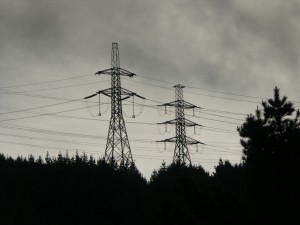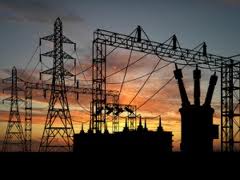4 item(s) were returned.
Chair, Energy & Commerce Subcommittee on Environment & Climate Change, U.S. House of Representatives
Co-Chair, Sustainable Energy & Environment Coalition
On a hot day in August 2003, a stretched transmission line tripped after dipping into an overgrown tree in Ohio. Soon after, multiple transmission lines nearby also tripped beginning what would become the second-largest blackout at that time in history, impacting eight Northeastern states and Southern Canada. Since this massive blackout and concerns about grid reliability, power generation in the United States has changed dramatically both in form and quantity. In 2005, Congress recognized the need for mandatory grid reliability standards and expanded the Federal Energy Regulatory Commission’s (FERC) authority to regulate the bulk power system. However, despite FERC’s efforts… [more]
View InsightChairman
Foundation for Resilient Societies
Through the Energy Policy Act of 2005, Congress formed a hybrid system for setting electric grid reliability and security standards; a private corporation, the North American Electric Reliability Corporation (NERC), writes grid standards, while a government agency, the Federal Energy Regulatory Commission (FERC) reviews and approves NERC’s standards. FERC and NERC appear to have a close working relationship in jointly developing grid standards. During an April 10, 2014 Senate Energy Committee hearing “Keeping The Lights On—Are We Doing Enough To Ensure The Reliability And Security Of The U.S. Electric Grid?” both Cheryl LaFleur, Acting Chair of FERC, and Gerry Cauley,… [more]
View InsightState Representative
Maine State Legislature
At the December 6, 2013 Dupont Summit Conference of the Infragard EMP-SIG, presenters highlighted technologies and policy recommendations aimed at protecting the electric grid against potentially catastrophic events, such as a solar storm or the detonation of an electromagnetic pulse (EMP) weapon. An important policy question that arose from these presentations was whether electric utilities should remain the primary source of expertise and new reliability standards to mitigate risks of grid collapse and associated grid blackouts? Should states act to set state reliability standards to protect grids from solar storms and other EMP hazards, absent preemption by federal reliability standards? … [more]
View InsightState Representative
Maine State Legislature
On June 11, 2013, the State of Maine passed the first legislation in the nation to protect the electric grid against electromagnetic pulse (EMP) and geomagnetic disturbance (GMD). EMP’s, such as high-altitude nuclear explosions, and GMD’s, such as major solar flares and storms, have the potential to critically disrupt or destroy the electric grid. In March 1989, a moderate solar storm hit Quebec, Canada, causing a province-wide blackout that cost two billion dollars in direct damage, and scattered effects throughout the northeast United States. The Maine legislation that I sponsored, LD 131, “Directing the Public Utilities Commission To Examine Measures… [more]
View Insight


